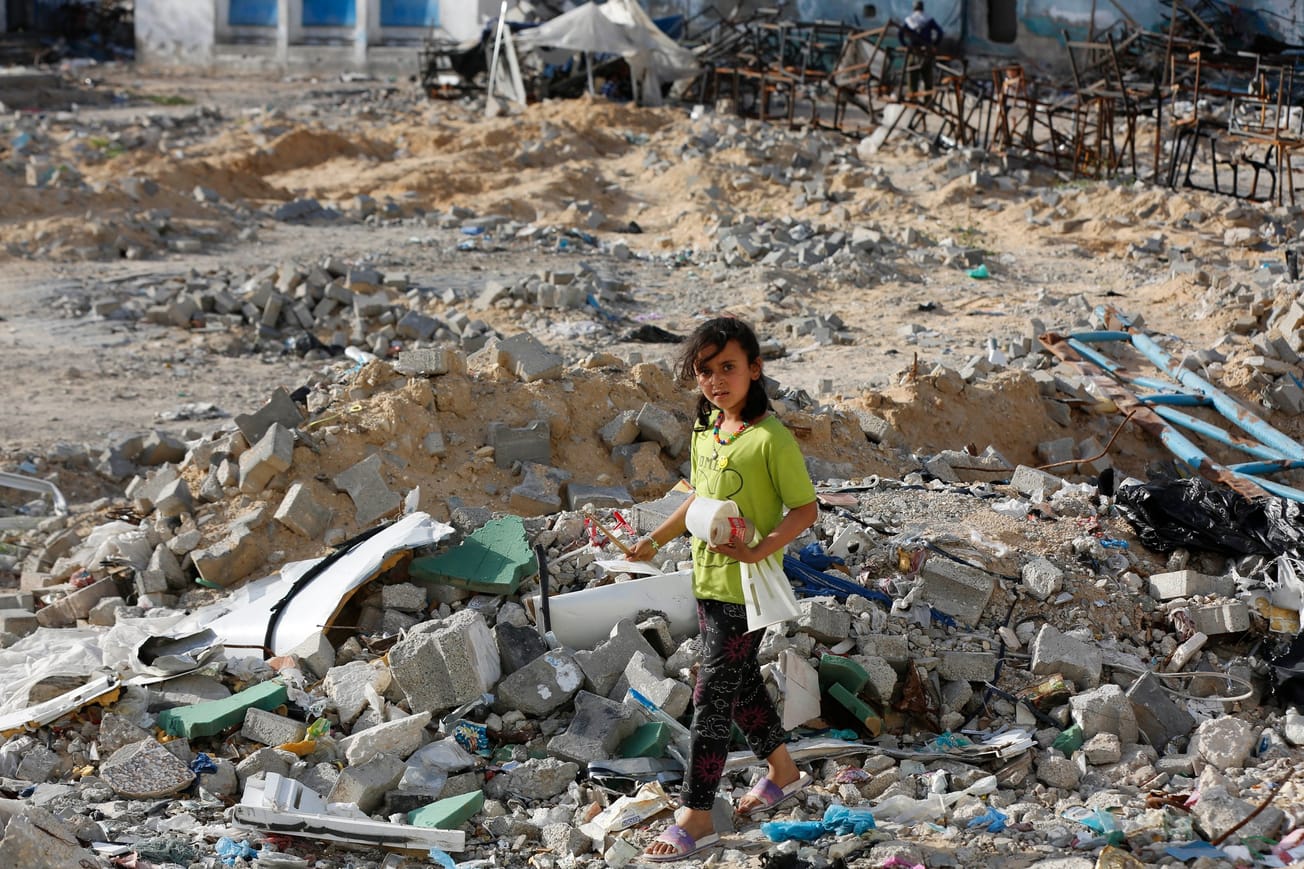What Israel is carrying out now in the Gaza Strip city of Rafah and surrounding areas is a policy of extermination—in which an impoverished, starving, traumatized population is told to move, again, so that Israel can “fight the terrorists.” Move to where? This morning, the Israel Defense Forces (IDF) issued an “urgent warning” telling residents to evacuate parts of central Rafah, providing a map to show which parts of the city it now considers to be a “dangerous combat zone.” Warning it would act with “extreme force against terrorist organizations in your area of residence,” the IDF told residents they must leave immediately, or risk their lives and those of their family members. “For your safety—we ask you to evacuate immediately to the humanitarian zone.”
Humanitarian zone? Rafah residents were instructed to go to the coastal area of Al Mawasi, about which on May 9 the UN reported that it has absolutely nothing—no water, electricity, fuel, medical supplies, food—nothing. The same is true of Khan Younis, which has no services of any kind, where the IDF told others to go to. The IDF is also ordering Palestinians in Jabalia, in north Gaza, to evacuate to shelters in Gaza City to the west. The IDF had the audacity to tell Palestinians that that are doing this to move civilians away from the combat zone “in accordance with international law.”
The so-called “expanded humanitarian zone” where people from Rafah are supposed to seek shelter has no infrastructure for the current tent city of displaced people already there, and certainly can’t take the additional 150,000 people heading in their direction. Most refugees think that there is no safe area and that every square inch is a target. The New York Times quotes one displaced Palestinian as saying, “We don’t know what will happen to us. We are going towards the unknown. Everyone feels the same.”
Since Sunday, May 5, no food, fuel, medicine, or other supplies have entered Gaza. Truck convoys of supplies parked at border crossings not allowed to pass. On May 9, Truthout reported that UNRWA’s Communications Director Louise Wateridge told the BBC that there would be no more functioning hospitals, water processing or sanitation services in Gaza within the next few days if Israel continues its blockade of fuel and all other forms of humanitarian aid.
“There is no fuel for the sanitation workers to move any of the trash piling up. It’s summer, disease is spreading, there is trash everywhere. There’s no fuel to run generators for hospitals, there’s no fuel for the water supply. The water supply is going to shut off. Already in Khan Younis, it’s destroyed. There is no available water in Khan Younis,” she continued. “Everywhere else is going to run out because of fuel.”
Despite the despair within Gaza, student protests on their behalf within the United States have sparked a tide of optimism around the globe. One displaced Palestinian man traveling north in search for a new place to stay, said of the American students, “These protests and the solidarity have a great impact on the American government, the whole world, and the United Nations because students around the world rose up against injustice and against the oppression that the Palestinians are subjected to. God willing, it will have a positive impact.”






